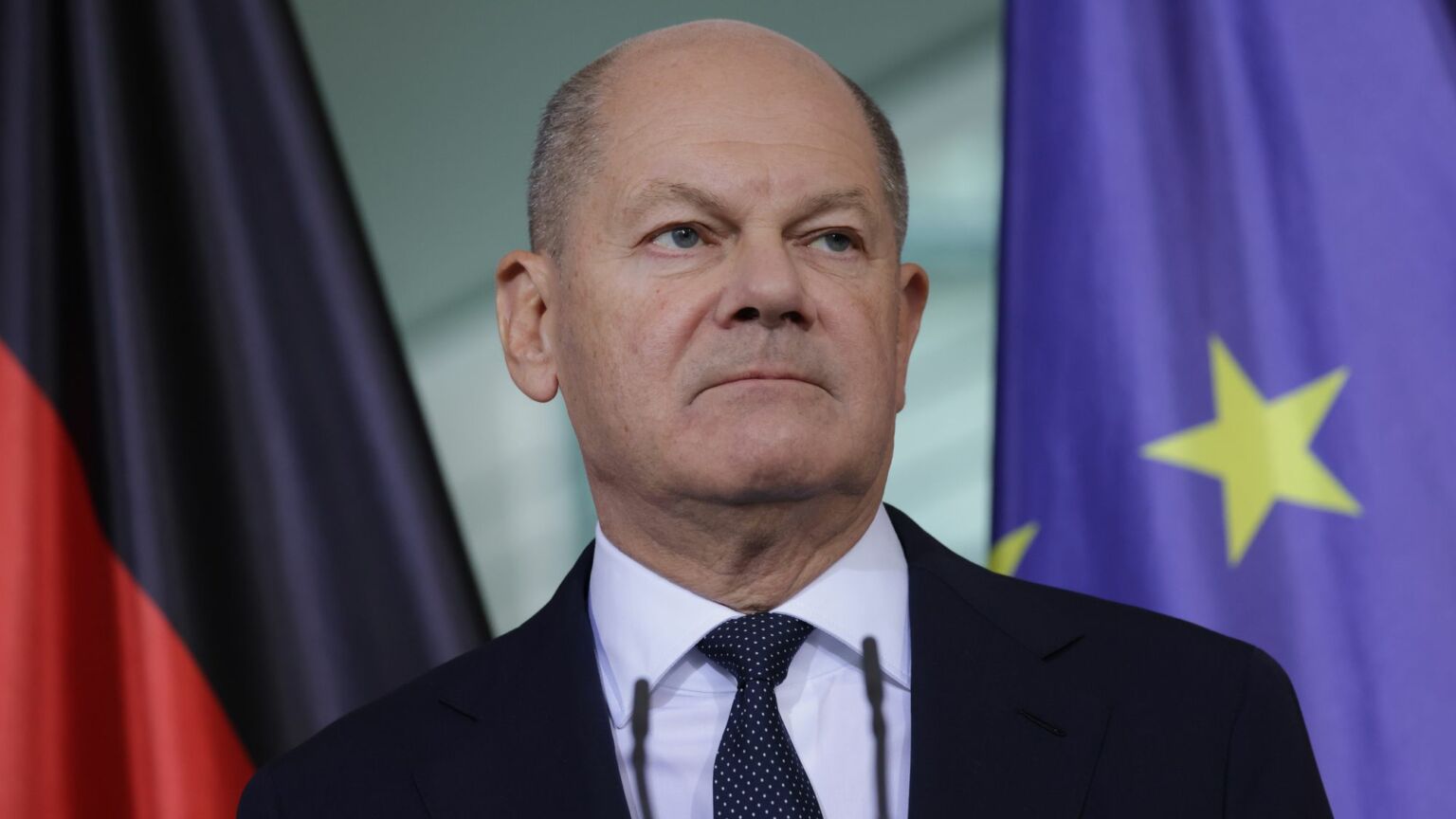Germans have had enough of their useless leaders
Chancellor Olaf Scholz can't run away from the electorate forever.

Want to read spiked ad-free? Become a spiked supporter.
When German chancellor Olaf Scholz announced the dissolution of his unpopular coalition government on Wednesday evening, there were certainly many who cheered. As the popular tabloid, Bild, put it, ‘Off, off, off! The Traffic Light is off!’ – a reference to the traditional red, yellow and green colours of the three coalition members, the Social Democratic Party (SPD), the Free Democrats Party (FDP) and Alliance 90 / the Greens.
As it stands, the collapse of the coalition does not mean that new elections are around the corner. Scholz has already announced his intention to delay a no-confidence vote until January next year and for the SPD and the Greens to rule as a minority government for the time being. This would push any new federal election into March at the earliest.
The collapse of the coalition may have been triggered by SPD member Scholz’s decision to sack the FDP’s Christian Lindner as finance minister on Wednesday. But the coalition had been riddled with infighting and personal squabbling for a while.
Coalition partners had been arguing for months over how best to tackle the gaping hole in Germany’s budget next year. The SPD and the Greens were prepared to take on more debt and increase public spending, while the liberal FDP wanted to stick to the state’s self-imposed fiscal rules (the so-called debt brake). The FDP proposed tax and spending cuts instead. Seeing no way forward, Scholz decided to axe Lindner. And now, without the FDP, the chancellor lacks a majority in parliament.
The government’s problems go deeper than budgetary disputes, however. Since forming a coalition after the 2021 federal election, all three parties have haemorrhaged public support. This was brought home in the state elections in September, when populist parties made significant gains at coalition parties’ expense. Lindner’s FDP, which failed to reach the five per cent threshold necessary to pick up seats, was all but wiped out. The FDP’s Wolfgang Kubicki tweeted at the time that the government had lost the trust of the voters. With the federal election looming next year, all coalition parties are well aware of the trouble they are in.
Ironically, by ending the coalition, Scholz has finally done something the German public supports. Indeed, a few days before Lindner’s sacking, polls showed that a majority were in favour of dissolving the government and holding new elections sooner rather than later. One survey in September showed that only three per cent of people were still satisfied with the work of the coalition.
Public disillusionment is understandable. Over the past few years, German citizens have watched as the government has dismantled the nation’s last remaining nuclear power plants, despite a growing energy crisis. They have experienced the pain brought about by the government’s Net Zero commitments, as Germany’s economy has started to tank. German companies are now cutting jobs on a scale not seen since the pandemic. Even the car-manufacturing giant, Volkswagen, has announced the closure of three factories at the cost of thousands of jobs.
It’s not just the government’s Net Zero madness and economic self-sabotage that has angered citizens. Its failure to protect them from harm has also angered many. Criminal gangs and especially Islamist terrorists are seemingly carrying out violent attacks with abandon.
To top it all off, the government has just pushed through a damaging and unpopular gender self-ID law. This denial of biological reality has upset just about everyone, from women’s rights campaigners to gay-rights activists.
Germans are now desperate for political change. But as Scholz’s decision to postpone any no-confidence vote until next year shows, he’s determined to cling on to power for as long as possible.
The fact that Scholz shies away from elections, even as his government crumbles around him, shows how much he and his party fear the voters. While the conservative Christian Democratic Union (CDU) and the right-populist AfD have demanded snap-elections, the SPD and the Greens are standing firm. The SPD mayor of Hamburg, Peter Tschentscher, has said that ‘hasty and uncontrolled’ elections would be irresponsible.
The CDU’s enthusiasm for snap elections is understandable given it is currently ahead in the polls. Yet it is far from certain that it has any real answers to the challenges ahead. After all, the CDU, as the governing party for much of the past two decades, is in large part responsible for the dire straits in which the nation now finds itself, from its calamitous decision to phase out nuclear power to its embrace of greenism. Whether it has now really changed is up for debate.
Either way, the slow-motion collapse of the coalition government and the inevitability of new elections provide the German people with a vital opportunity. An opportunity to demand solutions to the challenges their nation faces. An opportunity to finally make their voice heard.
Sabine Beppler-Spahl is spiked’s Germany correspondent.
Picture by: Getty.
Who funds spiked? You do
We are funded by you. And in this era of cancel culture and advertiser boycotts, we rely on your donations more than ever. Seventy per cent of our revenue comes from our readers’ donations – the vast majority giving just £5 per month. If you make a regular donation – of £5 a month or £50 a year – you can become a and enjoy:
–Ad-free reading
–Exclusive events
–Access to our comments section
It’s the best way to keep spiked going – and growing. Thank you!









Comments
Want to join the conversation?
Only spiked supporters and patrons, who donate regularly to us, can comment on our articles.